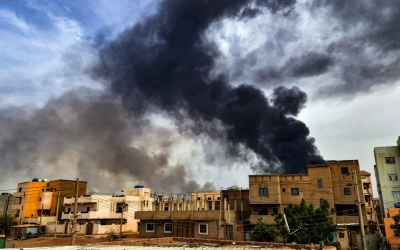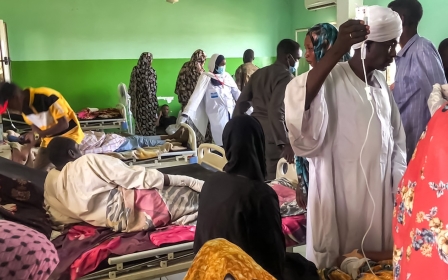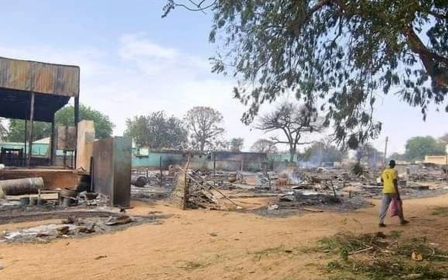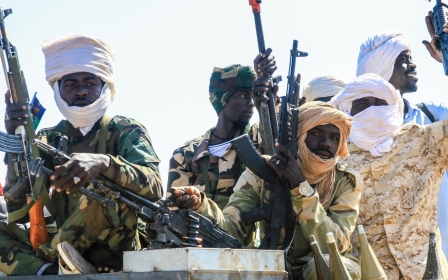UAE cancels meetings with UK ministers in spat over Sudan war
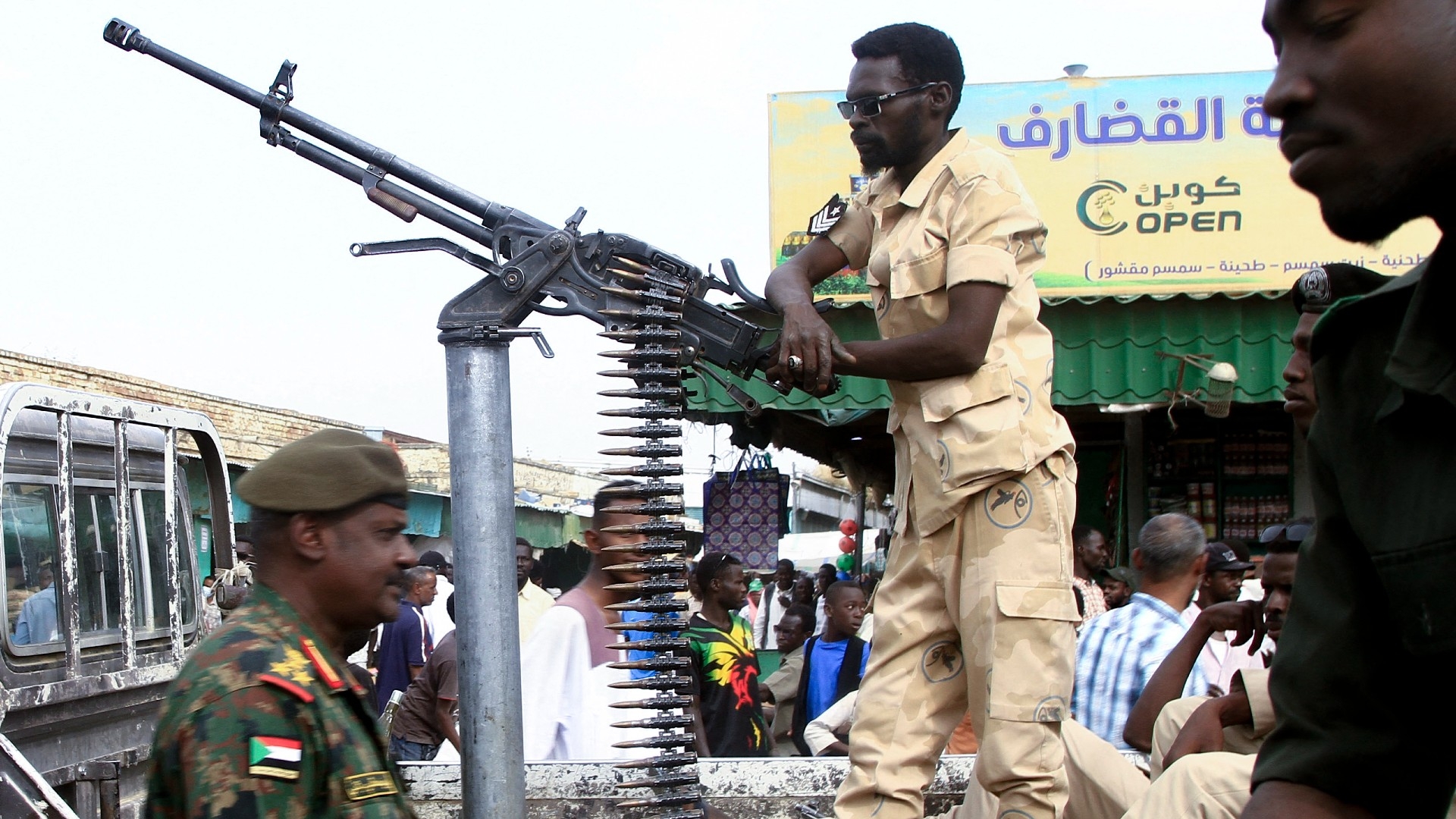
The United Arab Emirates has cancelled a number of meetings with UK ministers after the Emiratis were accused of aiding a paramilitary group waging war in Sudan.
Earlier this month, the United Nations Security Council held a meeting about Sudan's civil war - which broke out a year ago - at the request of the UK.
During the session, Sudan's representative accused the UAE of providing backing to the Rapid Support Forces (RSF) paramilitary group, a charge which Abu Dhabi has denied.
According to a report in The Times on Sunday, four UK ministerial meetings have been cancelled by the Emiratis, who were reportedly angered by the British not jumping to the UAE's defence at the Security Council.
The development came just days after the Guardian reported that the UK had itself been holding secret talks with the RSF.
New MEE newsletter: Jerusalem Dispatch
Sign up to get the latest insights and analysis on Israel-Palestine, alongside Turkey Unpacked and other MEE newsletters
The RSF has been at war with the Sudanese Armed Forces (SAF) since 15 April last year. The war has displaced over eight million people and has left 18 million "acutely food insecure", according to the UN’s World Food Programme.
A report released in mid-April by the Raoul Wallenberg Centre concluded that a genocide was taking place against non-Arab groups in Sudan’s Darfur region, at the hands of the RSF and allied militias.
It stated that there was "clear and convincing evidence" that Sudan, the UAE, Libya, Chad, the Central African Republic (CAR) and Russia, via the actions of the Wagner Group, were "complicit in the genocide".
Khartoum has called for an emergency meeting of the Security Council over the UAE's backing of the RSF, according to a report in AFP on Saturday.
"If the UAE is so adamant in their denials that they are supporting the RSF, then why spend so much diplomatic capital to prevent the discussion," Cameron Hudson, a former CIA analyst and senior associate at the CSIS Africa Program, told Middle East Eye.
Hudson said that sources familiar with the matter had told him that the UAE was pressuring the US, UK and other Security Council members to cancel the emergency meeting.
"In Washington, this is bringing to a head disputes between Africanists who want to take a hard line on the UAE’s behaviour in Sudan and the Biden administration’s Middle East [policy team], led by Brett McGurk, who have resisted using their leverage with the UAE over Sudan," he said.
RSF supply lines
MEE has reported on the network of supply lines that exist to funnel arms and other goods from the UAE to the RSF, via allied groups and governments in Libya, Chad and the CAR.
The UAE is the Sudanese paramilitary’s main patron, with the supply of arms to the RSF also facilitated by Libyan commander Khalifa Haftar, and running overland from Chad and the CAR, as well as being flown out of airbases in Uganda.
The paramilitary force has denied that it is being supplied by the UAE and rejected accusations that it is waging an ethnically motivated campaign of violence in Darfur.
Responding to Sudan's accusations at the UN Security Council, Abu Dhabi said: "The United Arab Emirates unequivocally rejects the baseless allegations made by the permanent representative of Sudan, which run counter to the longstanding brotherly relations between our two countries, and regrettably appear to be nothing more than an attempt to divert attention from the conflict and the dire humanitarian situation caused by the ongoing fight.
"All allegations of the United Arab Emirates’ involvement in any form or aggression in the destabilisation of Sudan, or its provision of any military, logistical, financial or political support to any faction in Sudan, are spurious, unfounded and lack any credible evidence to support them."
In December, Sudan demanded that 15 Emirati diplomats leave the country after an army commander accused the UAE of supporting the RSF.
Over the weekend, the Security Council expressed "deep concern" over an imminent attack on al-Fashir in the Darfur region by the paramilitary group.
UN officials warned that 800,000 people in Al-Fashir - the last major city in Darfur not under RSF control - were at "extreme and immediate danger".
Middle East Eye delivers independent and unrivalled coverage and analysis of the Middle East, North Africa and beyond. To learn more about republishing this content and the associated fees, please fill out this form. More about MEE can be found here.


